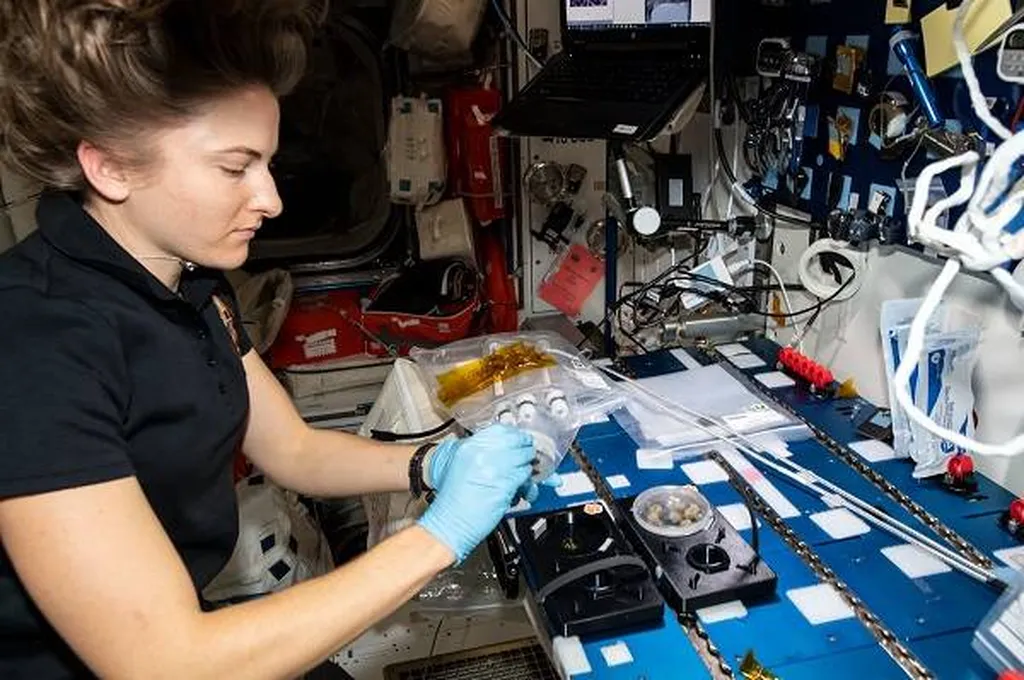In the heart of Italy, a team of researchers led by Luca Rivoira from the Department of Chemistry at the University of Turin has developed a groundbreaking method to ensure the safety of our food, particularly leafy greens like rocket (Eruca vesicaria), when irrigated with reclaimed wastewater. This study, published in the journal *Foods* (known in English as “Nutrients”), addresses a growing concern in agriculture: the potential accumulation of harmful organic micropollutants in crops irrigated with treated wastewater.
As the global demand for water increases, so does the need for sustainable water management practices. Reclaimed wastewater is increasingly being used in agriculture, but this practice raises questions about the safety of our food. Rivoira and his team set out to optimize a method for detecting trace levels of priority organic micropollutants, including polycyclic aromatic hydrocarbons (PAHs), nitro-PAHs, and polychlorinated biphenyls (PCBs), in rocket leaves.
The researchers developed a novel QuEChERS–SPME–GC/MS method, which combines dispersive solid-phase extraction (d-SPE) cleanup with aqueous dilution prior to solid-phase microextraction (SPME) and gas chromatography-mass spectrometry (GC/MS). This method was rigorously validated, demonstrating excellent performance with detection limits as low as 0.1 µg/kg, recoveries between 70 and 120%, and precision below 20%. “The greenness of our protocol was also assessed using the AGREE metric, yielding a score of 0.60, which indicates a good balance between environmental impact and analytical performance,” Rivoira explained.
The method was then applied to rocket samples irrigated with treated wastewater. The results were reassuring: no significant accumulation of target pollutants was found compared to commercial samples. All PCB and nitro-PAH congeners were below detection limits, and PAH concentrations were low, mostly limited to lighter compounds. A human health risk assessment further confirmed that the estimated cancer risk values were well below accepted safety thresholds.
This research has significant implications for the agricultural and energy sectors. As water scarcity becomes an increasingly pressing issue, the safe use of reclaimed water for irrigation is crucial. Rivoira’s method provides a reliable tool for monitoring the safety of crops irrigated with treated wastewater, ensuring that they meet food safety standards. “Our findings support the safe use of reclaimed water for leafy crop irrigation under proper treatment conditions,” Rivoira stated.
Moreover, this research highlights the importance of investing in advanced analytical techniques for food safety monitoring. As the demand for sustainable water management practices grows, so will the need for methods that can detect trace levels of pollutants in our food. Rivoira’s work paves the way for future developments in this field, ensuring that our food remains safe as we strive towards a more sustainable future.
In the broader context, this study underscores the interconnectedness of agriculture, energy, and environmental sustainability. As we grapple with the challenges posed by climate change and resource scarcity, innovative solutions like Rivoira’s method will be instrumental in shaping a more resilient and sustainable future. The publication of this research in *Foods* further emphasizes its relevance to the global scientific community, providing a valuable resource for researchers, policymakers, and industry professionals alike.

